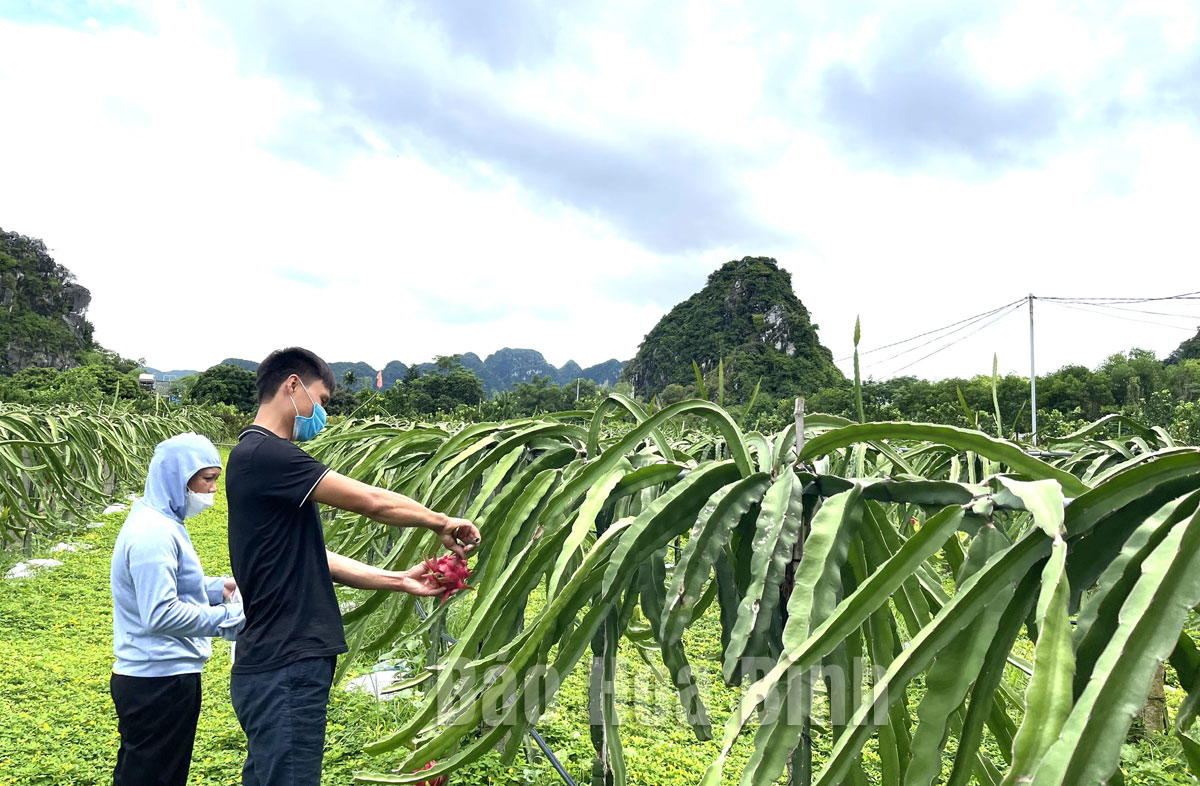



Red-flesh dragon fruit of Thanh Ha Agricultural Service Cooperative, Ba Hang Doi township (Lac Thuy) recognised as a 3-star OCOP product at the provincial level in 2020.
Owning a large number of OCOP products is considered an advantage but also poses many challenges in product consumption. Therefore, to support the development of those products, over the past years, Lac Thuy has stepped up investment, trade and tourism promotion activities; and introduced them to distribution systems across the country, especially e-commerce platforms.
Particularly for potential products, the district People's Committee continues to step up dissemination of the OCOP programme, and intensify digital transformation to improve the management and implementation capacity of relevant officials in the district and its communes.
Thanks to the support of authorities through the development of OCOP products, the district now has 17 recognised OCOP products at the provincial level, of which there are four 4-star and 13 3-star products. Some products have been exported to Taiwan (China), Japan, the Republic of Korea, and Germany. The results have contributed to speeding up economic restructuring, improving people's income, and serving as the basis for sustainable rural economic development, as well as the district's success in implementing the national target programme on building new-style rural areas and reaching the finish line on schedule.
Ngo Dinh Tam, head of the district’s Agriculture and Rural Development Desk, said that the district is striving to have four more 3-star and 4-star products this year, with a total estimated cost of 290 million VND (12,250 USD). In order to fulfil the set plan, the district encourages businesses and cooperatives to promote the application of science and technology to the production of goods and services, and promote processing and deep processing to create products of high value which are gradually standardised in line with international standards to serve export./.